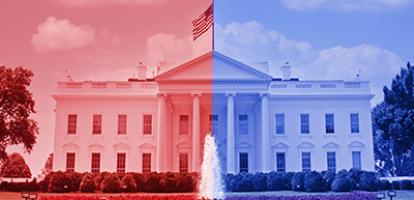From: Daniel Schwanen
To: The Honourable Chrystia Freeland, Minister of Global Affairs
Date: February 23, 2018
Re: NAFTA: How Donald Trump, and Canadian Consumers, Can Both Win
To avoid stalemate in the current NAFTA renegotiations, one thing seems sure: US President Trump will have to be able to declare a political “win” in the trade column.
It is extremely difficult for Canada and Mexico to do much to provide the President with this win, given his zero-sum view of trade relations. That view requires Canadian and Mexican producers to yield access to their markets, while agreeing to lose access to the US market. That is exactly what the US has demanded.
Canada has fought the good fight on preserving access to the US market for its producers. Along with the vast majority of US industry and agriculture, it has made the case that trade under NAFTA has been mutually beneficial. In this context, Canadian negotiators have countered US demands with proposals that seek to minimize the potential damage to overall North American competitiveness, while recognizing the will of the US to reclaim more activity for itself in sensitive sectors such as autos.
In contrast to this defensive game, however, there appears to have been little exploration of ways by which Canada could propose visible “wins” for the US that would also benefit Canadians. Yet such an outcome could be achieved in at least two areas: dairy and other products falling under Canadian agricultural supply management schemes; and the extraordinary low “de minimis” value beyond which Canadian customs authorities start imposing fees and taxes at the border on individual shipments coming into Canada.
In both cases, Canadian consumers, and in the case of supply management low-income Canadians in particular, would materially benefit from these changes. In both cases, Canada could walk its talk about the benefits of more open, indeed more inclusive, trade, while potentially luring US negotiators away from some of their more economically destructive protectionist proposals.
Regarding supply-managed commodities, there is no excuse any longer for a system that has been fleecing the typical Canadian family of hundreds of dollars a year for decades. Experience has shown that it is possible to continue to support rural producers and communities in ways that are far less ruinous to consumers and to the broader Canadian economy through massive forgone trade opportunities and lack of industry dynamism. The US and many other countries support their farmers through less distorting means, and we should start contemplating similar approaches, while proffering these reforms as a potential “win” for the US in these negotiations.
Regarding the de minimis level, studies have shown that the Canadian policy of imposing taxes and fees at the border for shipments over $20 – in contrast, the US de minimis level is $800 – are not worth the cost of collecting them, while imposing significant costs – including significant delays – on consumers. Because of the losses this barrier imposes on its own economy, Canada should also be more than willing to suggest it could raise this de minimis level, a move that would also seem attractive to US trade negotiators.
In short, one way that Canada should demonstrate the benefits of more open trade to the US administration is by accepting in principle to open its own markets more. Such a move would benefit Canadians as well – a clear “win-win”.
Daniel Schwanen is Vice-President Research at the C.D. Howe Institute
To send a comment or leave feedback, email us at blog@cdhowe.org.





